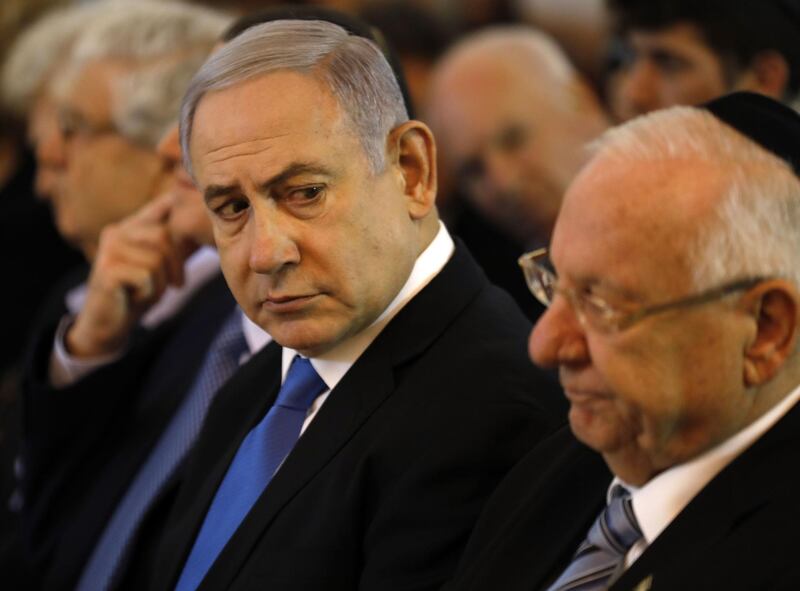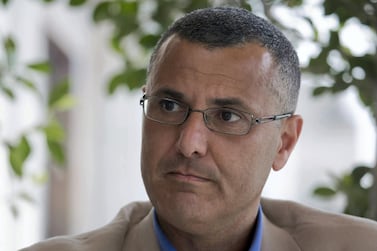Benjamin Netanyahu, Israel’s longest-ever serving prime minister, announced on Monday that he could not form a new coalition government after September’s unprecedented repeat election.
His main rival, Blue and White leader Benny Gantz, now has a shot at forming his own coalition after the vote left neither him nor Mr Netanyahu with a clear path to a majority. Israeli President Reuven Rivlin, a popular former speaker of parliament, has tasked Mr Gantz with attempting to form his own governing bloc.
He now requires the support of the majority of 120 politicians in Israel’s parliament, something that Mr Netanyahu has failed to do in two successive attempts.
So what does the longtime leader’s capitulation mean for Israel in the near future? And who will come out on top?
Mr Gantz will himself face long odds in forming a government, with many analysts predicting he too will fail to negotiate a unity coalition, something that many have advocated in Israel’s political elite. He has no clear route to a majority, with support for joining his coalition expected to be several seats short of the 61 required.
In that case, President Reuven Rivlin could ask a majority of parliament members to agree on a candidate.
Mr Rivlin has vowed to do all he can to prevent yet another election - a third since April - but the possibility remains that the stalemate could eventually trigger it. It would represent electoral history in Israel, which had never held more than one vote in one year.
Mr Gantz said on Tuesday that he was optimistic about his chances of doing what Mr Netanyahu could not do, and secure the magic number in parliament.
The decision does not mean the end of Mr Netanyahu’s political career, just yet. He still has various cards to play.
But he has been battling the threat to his political survival on two fronts, also facing the possibility of corruption charges in the weeks ahead.
Mr Rivlin had set out a compromise that could see Mr Netanyahu become premier first in a rotation, but step aside later to combat corruption charges if indicted as expected. But Mr Gantz refused to join a unity government led by a premier facing such accusations.
Mr Gantz’ chances will undoubtedly be helped by Mr Rivlin’s fractious relationship with Mr Netanyahu, who he has known since he was a child. A number of commentators have said that Mr Netanyahu's loathing of Mr Rivlin was due to his refusal to bend to his will.
But, while the Blue and White party celebrated on Monday evening, those celebrations could be premature.
Mr Netanyahu has shored up his religious-right bloc, which amounts to 55 seats in parliament, ensuring that there are unlikely to be defections from him to the former Israeli military chief. That means that Mr Gantz will have to come up with some answers in order to find the numbers he needs.
The other option he has is to try and form a minority government, with the Arab Joint List, which endorsed him for the premiership, and the Yisrael Beiteinu party of former defence minister Avigdor Lieberman voting in favour of Mr Gantz’ bloc in parliament without actually joining it.
Arab parties traditionally do not sit in Israeli coalitions because of the political situation in the country, and centrist and right-wing leaders like Mr Gantz and Mr Netanyahu do not wish them to be in their blocs for fear of losing right-wing voters.
If that happens then Mr Gantz will be roundly accused of standing with anti-Israel factions to push himself into power. That was the charge his own party levelled at Mr Netanyahu, that he would do anything to remain prime minister.
So whatever happens from here on remains unclear. But what is for certain is that Israeli politics will not be short of drama for the foreseeable future.







